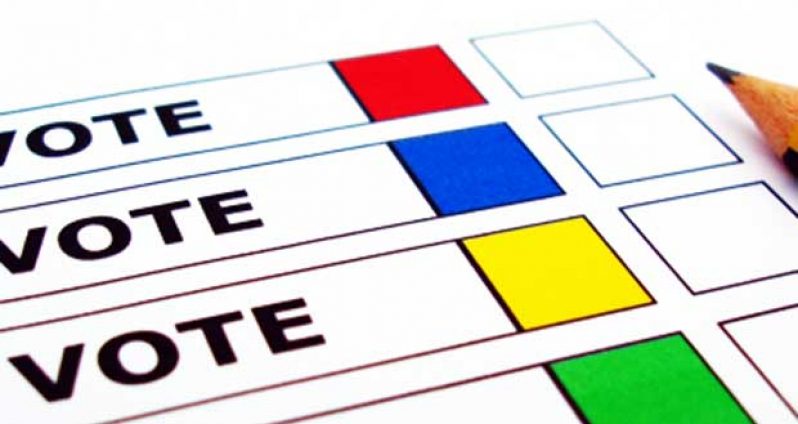GUYANESE VOTERS will trek to 2,299 polling stations across ten regions in this sprawling 83,000 square mile nation tomorrow to elect a new 65-member Parliament under the watchful eyes of teams of independent international, regional and local observers to verify free and fair polling.
While in the post-independence history of the Caribbean region observer missions for national parliamentary elections have become the norm, Guyana reputedly attracts the widest involvement of highly reputable elections monitors.
Heading the leadership of one of the main observer missions for tomorrow’s elections is former US President Jimmy Carter. His internationally recognised human rights centre had played the key role in restoration of electoral democracy in Guyana back in October, 1992, after 25 years of documented fraudulent elections under successive Governments by the now main opposition People’s National Congress (PNC).
Other observer missions for tomorrow’s elections—whose representatives have been busily engaged in various discussions and relevant activities over the past week–include the 53-member Commonwealth; Organisation of American States; Caribbean Community and the US Embassy in Georgetown.
Since 1992, parliamentary elections have evolved as the sole responsibility of the independent Guyana Elections Commission (GECOM) on which both governing and opposition parties are represented under an independent chairman—Dr. Steve Surujbally, who was there from the inception of the body.
Guyana stands unique in various ways of governance among the member countries of CARICOM. These include its wholly proportional representation (PR) electoral system for parliamentary and local government elections, as well as its fundamentally different governance system as a constitutional republic.
Crucial differences
For, instance, unlike Trinidad and Tobago, which also has a republican form of government with an elected President by both chambers of parliament but without executive powers, Guyana’s constitution provides for a Head of State with executive powers.
The President has enormous executive powers but has traditionally functioned in harmony with the 65-member National Assembly on the basis—with the sole exception of the last national elections in 2011—the party controlling Parliament has always been that also of the Head of State.
At the 2011 poll, the PPP/Civic returned to power for a fourth consecutive term with both the presidency and 32 of the 65-member parliament. However, with the combined Opposition parties securing 33, one more than the incumbent, this proved a frustrating period for bi-partisan cooperation during the tenth National Assembly which was eventually dissolved for the early elections scheduled for tomorrow.
Preliminary projections favour a return to state power by the incumbent PPP/Civic. But the main Opposition PNC (now heading what’s known as A Partnership for Change, APNU) has teamed up with the minor Alliance For Change (AFC) to contest the poll as an anti-government “coalition and keeping hopes alive for tomorrow’s verdict by the electorate.
In sharp contrast to the Opposition alliance’s fervent plea for change away from claimed nepotism, corruption and incompetence, the incumbent has been focused on what it is marketing to the electorate as “outstanding social and economic achievements” and buoyed by latest projections of further economic growth.
This optimism would have been encouraged by the latest projection from the International Monetary Fund (IMF) of the national economy set to grow by 3.8 percent in 2015 and a further 4.4 percent in 2016.
Of some related significance is a commentary this past May Day by the privately-owned ‘Stabroek News”—not known to be sympathetic to the governing PPP/C. In commenting on what it had headlined as “The clamour for change” the newspaper noted:
“If one were to predict the electoral outcome on May 11, simply by surveying the social media and online blogs, one might be forgiven for believing that Guyanese are ready for change and that the APNU+AFC coalition is heading for victory. The online battle is, however, but one aspect of the election and, whilst important, not necessarily a true and reliable indicator of how the majority of Guyanese will vote. In other words, reports or predictions of the demise of the PPP/C Government are premature, if not greatly exaggerated…”
According to the SN, “recent developments would, nevertheless, suggest that the PPP hierarchy perceives the threat to its almost 23 year-old hegemony as very real indeed…”
Well, Guyana’s voting electorate will decide tomorrow. The preliminary results should be known by late tomorrow night and the final, verified official declaration on Tuesday.
(Rickey Singh is a noted Caribbean journalist based in Barbados)
Analysis by
Rickey Singh



.jpg)









